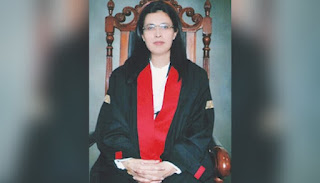Committed to restoring statehood’, Modi tells IIOJK leaders
Committed to restoring statehood’, Modi tells IIOJK leaders
All leaders demanded full-fledged statehood, says Congress leader Ghulam Nabi Azad after meeting with Indian PM
Indian Prime Minister Narendra Modi, in a three-hour meeting with top political leaders from Indian Illegally Occupied Jammu and Kashmir (IIOJK) on Thursday, has "committed" to restore the occupied valley's statehood.
On August 5, 2019, the Modi’s government had revoked articles in the Indian constitution that guaranteed IIOJK's partial autonomy and other rights including its own flag and constitution.
A huge accompanying security operation saw tens of thousands of extra troops — adding to 500,000 already there — enforce a siege-like curfew. Thousands were arrested and telecommunications were cut for months.
Read more: ‘Restoration’ of old IIOJK status on cards
IIOJK was demoted to a union territory governed directly from New Delhi, while the Ladakh region was carved out into a separate administrative area.
Creating such new “facts on the ground” in IIOJK has long been advocated by the Rashtriya Swayamsevak Sangh (RSS), the hard-line Hindu parent organisation to the Modi’s BJP party.
The move sent a further shudder through India’s 200 million Muslim minority and defenders of its secular traditions, who fear Modi wants to create a Hindu nation.
Soon after the meeting, Modi took to Twitter and termed the three-hour-long huddle “an important step in the ongoing efforts towards a developed and progressive J&K” .
It was the first such meeting since the Modi's government revoked the Himalayan disputed region’s autonomy, detained thousands and imposed a lockdown.
"The talks were held in a good atmosphere today. The prime minister heard our issues of all leaders. PM said that the election process will begin when the delimitation process finishes," one of the participants of the meeting J&K Apni Party's Altaf Bukhari said while talking to Indian media said.
Bukhari said that Modi asked all parties to participate in the delimitation process. "We have been assured that this is the roadmap towards elections," he added.
PM Modi said that his government is committed to the restoration of the statehood of IIOJK, he added.
Read more: Occupied Kashmir leaders to urge India's Modi to restore region's autonomy
Congress leader Ghulam Nabi Azad quoted Home Minister Amit Shah as saying that the government is committed to granting statehood to Jammu and Kashmir. "All leaders [during the meeting] demanded full-fledged statehood," he added.
'We're not ready to accept it'
Former IIOJK chief minister Omar Abdullah, who was released in March after 232 days in detention, said that he told Modi that he does not stand by what was done on Aug 5, 2019.
"We're not ready to accept it. But we won't take law into hands. We'll fight this in court," he told media, adding that there was no need for delimitation in IIOJK.
"We requested the PM that our fight will continue but it's essential to reverse some decisions that aren't at all in the interest of the state."
Abdullah said that IIOJK was given the status of a union territory. However, people do not like it. "They want full statehood for J&K with J&K cadre restored," he added.
Constitutional struggle for 'restoration of Article 370'
Jammu and Kashmir Peoples Democratic Party's Mehbooba Mufti said that people of IIOJK do not accept the unconstitutional removal of Article 370.
"People of J&K will struggle constitutionally, democratically, peacefully. Be it months or years, we'll restore Article 370 in J&K as it's a matter of our identity," she added.
India’s removal of the region’s statehood and semi-autonomy in 2019 drew stiff local opposition.
India claimed it is trying to speed development and infrastructure projects and strengthen village-level governance, even as it deploys heavy security in the restive occupied valley to try and clamp down on freedom fighters.
The Indian law ministry is also working to re-adjust some assembly and parliamentary constituencies in IIOJK, aiming to hold elections in the territory.
But despite the renewed effort at dialogue, people in the valley voiced distrust of New Delhi’s intentions.
In a bid to forestall protest over its move in 2019, India locked down the occupied valley, putting strict curbs on movement and telecoms, snapping most mobile telephone and internet links for weeks.
Even 18 months later high-speed mobile internet had been only partially restored


Comments
Post a Comment